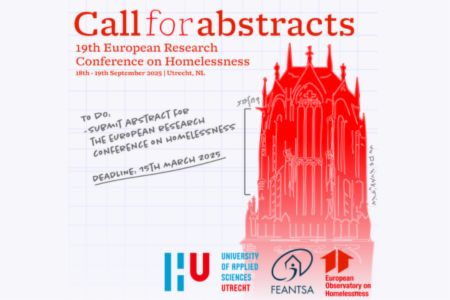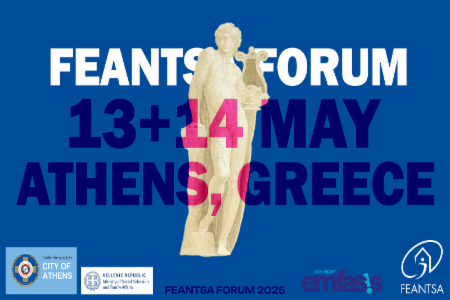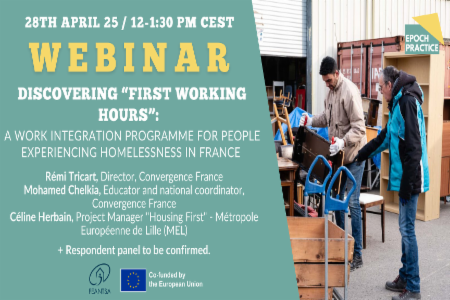The recent Overview of Housing Exclusion in Europe 2018 by FEANTSA and the Abbé Pierre Foundation finds that housing exclusion continues to be a growing problem in Europe, resulting in an increasing demand for support and increased pressure on emergency services. The numbers of people experiencing homelessness has continued to rise in almost all EU countries. A deterioration in the living conditions of extremely vulnerable families has led to children becoming the largest group of people in emergency shelters, with the numbers of women, young people, those with a migration background, and the working poor, becoming increasingly numerous among the homeless population. Housing affordability and liveability are emerging as the most challenging social policy issues in Europe, with the ability to access housing adversely affecting young people, those with dependent family members, and migrants.
Shelters are the physical interface of the staircase approach for people experiencing homelessness, with a succession of preparatory interventions, from initial reception to social reintegration. Despite this key role, many shelters are often rundown and equipped with low quality and second-hand furniture, reflecting an image of exclusion and instability. They lack privacy and come with the expectation of cohabitation with strangers. Emergency accommodation is supposedly a temporary solution although, in reality, it prolongs precarious living situations and rarely leads to well-being, recovery and social integration.
The following articles provide an insight into the relationship of those using sheltered accommodation, those providing and staffing the shelter and the very building itself, as well as an opportunity to better understand some of the national realities and challenges faced by the homelessness sector professionals in different European Member States.
- Editorial: Ian Tilling, FEANTSA President
- Has the Standardisation of Homelessness Services in Poland Facilitated Access to Shelter? Jakub Wilczek, Saint Brother Albert's Aid Society
- Access to Shelter in France: Hélène Chapelet and Carole Lardoux, Fédèration des acteurs de la solidarité
- Access to Homelessness Services and Housing in Amsterdam: Jan de Ridder, Arjan Kok and Marcella van Doorn, Audit Office Metropool, Amsterdam
- Shelter Costs in Ireland and the Transition to Secure More Effective Responses to Homelessness: Pat Doyle, Peter McVerry Trust
- The Cheaper, The Better? Housing the Homeless in France? Marc Uhry, Consultant on Housing Policies
- Shelter as a Place of Wellbeing and Dignity: Cristian Campagnaro, Valentina Porcellana, Nicolo di Prima and Sara Ceraolo, Politecnico di Torino
- Rough Sleepers have their Reasons: Julien Damon, Sciences Po
Following the publication of this magazine, FEANTSA received a request from HVO-Queirdo, the largest organisation working with the homeless in Amsterdam, to publish a reaction to the article about access to homelessness services and housing in Amsterdam. You can access it here: The Amsterdam Story: Better Access to Shelter, Better Access to Housing.
Following the publication of this magazine, FEANTSA received a request from Fédération des maisons et initiatives d’accueil et d’accompagnement en faveur de personnes en difficulté et des sans-abri à Bruxelles, the Brussels city authority for working with homeless, to publish this article on their current work to combat homelessness in the city. You can access it here: Bruxelles: Nouvelle Ordonnance.





